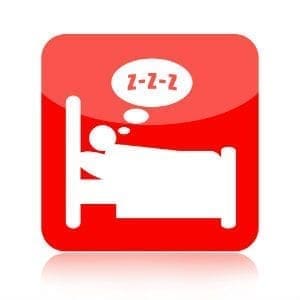 A recent study conducted by Hospitality GEM1 has shown that 87% of diners would not return to a pub or restaurant if they have experienced poor service from staff and 95% would tell their friends if the service was slow.
A recent study conducted by Hospitality GEM1 has shown that 87% of diners would not return to a pub or restaurant if they have experienced poor service from staff and 95% would tell their friends if the service was slow.
The same study showed that 57% of consumers want to be seated within five minutes of arriving at the venue and two-thirds expect their order to be taken within five to ten minutes.
The message is quite simple: attending to diners in a timely and professional manor is integral to deliver good customer service. However, the reality may not be so simple. The underlying cause may be a combination of various factors such as 2:
- Staff failures e.g. not paying attention to customers entering the premises or failing to take orders correctly
- Customer failures e.g. customers making the wrong order or having unrealistic expectations
- Design failures e.g. some dishes are simply too complex to finish
- Facilities failures e.g. the breaking down of a coffee machine
- Supply failures e.g. suppliers delivering the wrong type of goods.
In order to prevent these failures, managers can consider one or more of the following:
Review standard operating procedures (SOP)
Every business should have Standard Operating Procedures (SOP) that specify all aspects of operations. A good SOP not only ensures compliance to legal requirements and safe food handling, but also clearly communicates the expected standard of products and services.
Review products and/or facilities
You may have a good clear SOP and standard recipes that take all aspects into consideration, however, are all products designed to meet the market demand and concept of the business? Does all of your equipment optimise productivity?
Review the supply chain
Advances in technology have allowed businesses to find innovative solutions to challenges faced continually in the hospitality sector. It is worth reviewing operations to see if you can streamline them without compromising the standards of products and services. When designing and managing the supply chain one of the first steps is to decide what to make or buy (or outsource), for example, sourcing prepared food that meets your quality standards, or keeping optimal stock levels through an automated stock control and ordering system.
Train and develop your staff
The guest experience depends on how each single moment between a member of hospitality staff and a guest is handled therefore, training and developing your staff plays a vital role in managing service experience.
- http://www.hospitalitygem.com/media/131511/ep-magazine-180815-speed-of-service.pdf
- Slack, Chambers and Johnston, 2009
About the author
 Yukari Iguchi is the Academic Lead, Hospitality and Leisure at the University of Derby Online Learning (UDOL). Yukari has worked in various sectors within the hospitality industry, including hotels, restaurants, bars and theme parks in Japan, Switzerland and the UK.
Yukari Iguchi is the Academic Lead, Hospitality and Leisure at the University of Derby Online Learning (UDOL). Yukari has worked in various sectors within the hospitality industry, including hotels, restaurants, bars and theme parks in Japan, Switzerland and the UK.
Since 2012 Yukari joined UDOL to share her knowledge of the hospitality sector with others. During her academic career Yukari also performed a range of roles including Programme Leader for undergraduate hospitality programmes, International Student Coordinator, International Collaborative Project Manager, and Online and Distance Learning Coordinator.















